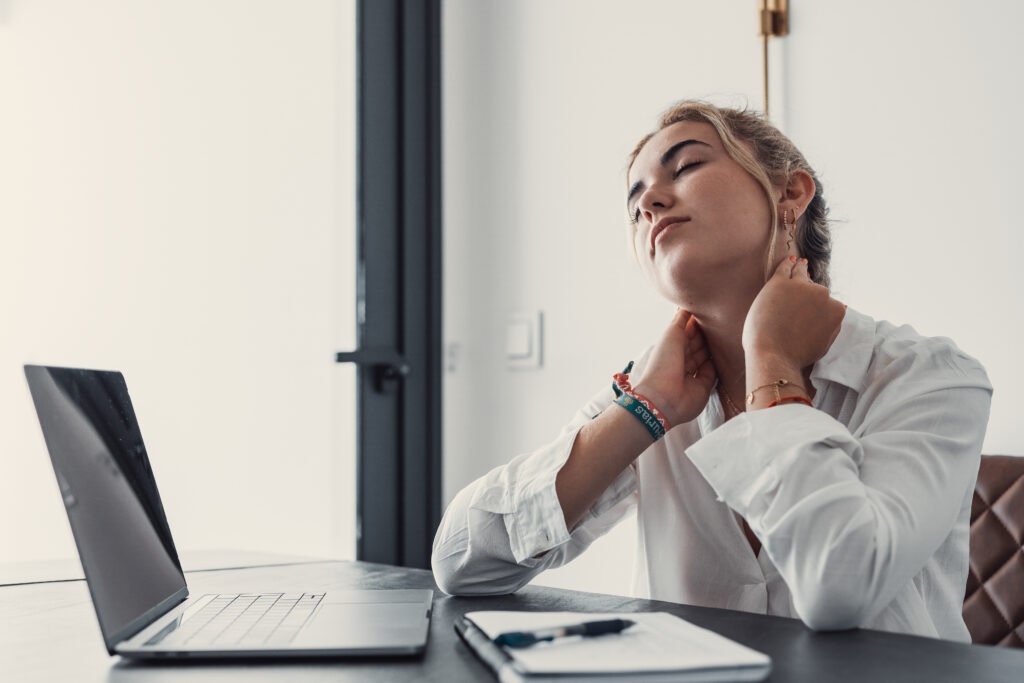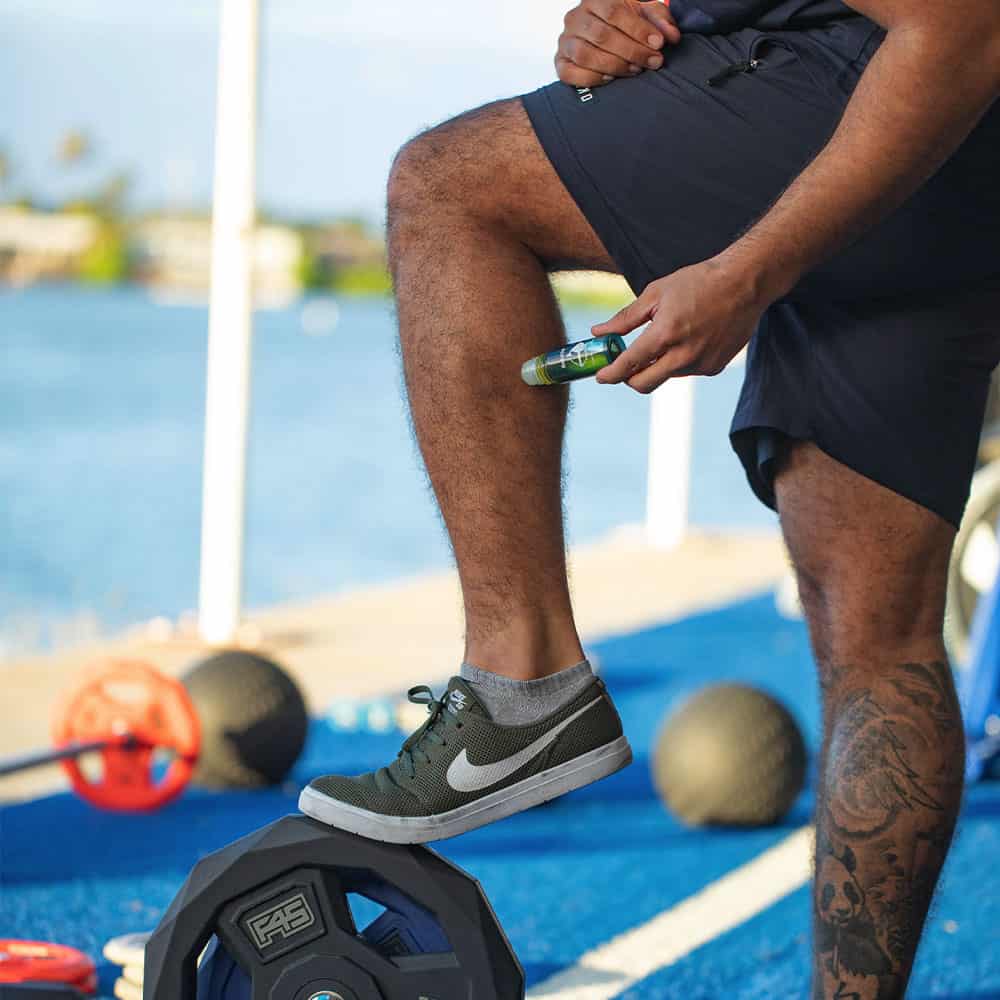
The best over the counter muscle relaxers make a formidable squad of natural superheroes emerging to save the day! These over the counter muscle relaxing champions have the power to vanquish discomfort, rescue you from pain, and bring back the joy of movement. Whether you’re a weekend warrior or an everyday hero, the battle against muscle spasms is real, and our top five natural allies are here to lend a hand—or should we say, a helping muscle! Unveil their superpowers as we explore the ultimate team-up for relaxation: magnesium, pickle juice, the dynamic duo of Bai Shao and Gan Cao, the incredible stretch, and the mighty topical products.
But first, let’s understand the enemy they’re up against—those pesky muscle spasms—and why it’s crucial to have these heroes in your corner. Muscle spasms and pain can significantly impact our daily lives, hindering our ability to perform routine activities, ability to focus, and enjoy life to the fullest. While there are over-the-counter (OTC) muscle relaxers available, many individuals are turning to natural alternatives to avoid potential side effects and dependency issues associated with pharmaceutical drugs. Natural muscle relaxers are a promising option for those seeking a safer and gentler approach to muscle relaxation. Here are the top 5 over the counter muscle relaxers!
1. Magnesium – The Muscle Mineral
Magnesium, often regarded as a multifaceted mineral, plays a pivotal role in muscle relaxation, but its benefits extend far beyond that. Magnesium is a remarkable ally in promoting overall well-being, thanks to its ability to help lower blood pressure and enhance sleep quality. By relaxing blood vessels, magnesium can contribute to blood pressure regulation, making it an invaluable component of heart health. Additionally, magnesium has a calming effect on the nervous system, aiding in stress reduction and sleep improvement. Adequate magnesium intake, typically within the therapeutic range of 200-400mg per day, can be transformative.
However, like any superhero, magnesium has its kryptonite: excessive intake can lead to diarrhea, so it’s essential to strike the right balance to reap its muscle-relaxing and holistic health benefits. Embrace magnesium, and it might just become your secret to muscle relaxation, better sleep, and a healthier heart all in one. Magnesium is an easily found over the counter muscle relaxer.
RELATED: Looking for a good source of Magnesium?
2. What about pickle juice?

Pickle juice, an unexpected hero in the battle against muscle spasms, delivers a salty punch that can swiftly restore your electrolyte balance. Packed with sodium and a hint of vinegar, this zesty remedy may not only help prevent muscle spasms but also provide rapid relief when they strike. It’s like a lightning-fast rescue mission for your muscles. The high sodium content in pickle juice aids in replenishing the electrolytes lost during physical activity or dehydration, essentially telling your muscles to ease up and relax. While individual responses vary, many athletes and fitness enthusiasts swear by the near-instantaneous relief pickle juice can provide during cramp emergencies.
Who would have though pickle juice could be an over the counter muscle relaxer? So, next time you reach for that jar, know that you’re not just satisfying your taste buds; you’re arming yourself with a quick and salty solution to muscle spasms. If you are not dehydrated or have hypertension, take caution because the salty goodness can spike your blood pressure! Its easy to find.
3. The Powerful Two Herb duo White Peony and Licorice Root
Bai Shao, also known as Chinese white peony root, stands as an illustrious figure in the epic tale of traditional Chinese medicine (TCM). Revered for centuries, this botanical marvel has become a legendary natural muscle relaxer and pain reliever. Its reputation as a muscle-soothing hero is rooted in its influence on the nervous system, delivering a holistic approach to muscle relaxation that’s nothing short of awe-inspiring.
A study published in the “Journal of Ethnopharmacology” in 2013, ventured deep into the heart of white peony’s muscle-relaxing prowess. This scientific quest, conducted on valiant animal models, unveiled a promising narrative—an extraordinary reduction in muscle spasms and a simultaneous surge in muscle relaxation following the administration of white peony.
But what’s the secret behind this hero’s power? Enter its dynamic duo of compounds: paeoniflorin and albiflorin, the unsung heroes. These mighty components have been the focus of scientific intrigue, renowned for their astounding muscle-relaxing abilities. Their mission? To thwart the activity of acetylcholine—an unruly neurotransmitter notorious for causing muscle contractions. With cunning precision, white peony swoops in as the natural antagonist, persuading muscles into a serene state of relaxation and unfurling the flag of tension relief.
The trusty sidekick to white peony in our muscle-relaxing adventure, is none other than licorice root—a true superhero in the world of natural medicine. Just like a dynamic duo, these two herbs complement each other seamlessly. licorice root brings its own set of superpowers to the table, known as glycyrrhizin, a compound famous for its anti-inflammatory and pain-relieving effects. It swoops in to save the day by reducing inflammation in those sore, spasm-prone muscles.
But that’s not all! licorice root also has a secret identity as a mild sedative, promoting relaxation and stress relief. Picture it as a soothing lullaby for your muscles, easing tension and helping them relax even further. In a study published in the “Journal of Natural Products” in 2015, it was unveiled that glycyrrhizin, the star of licorice root, possesses muscle relaxant abilities, adding to its arsenal of superpowers.
So, when white peony and licorice root join forces, they become an unstoppable team, offering you a thrilling and effective solution for conquering muscle spasms and discomfort. Just these two herbs together can be a powerful formula- so much they can be used as a base to build upon for other musculoskeletal issues formulas. But wait, our adventure isn’t over yet—there’s two more heroes to meet!
4. Stretching

Ok it’s not an over the counter muscle relaxer but stretching is not just a routine addition to your fitness regimen; it’s the secret sauce for maintaining muscle health and preventing those pesky muscle spasms. Think of it as your body’s daily dose of flexibility and relaxation- and you don’t have to swallow anything!
Stretching exercises help elongate and loosen muscle fibers, improving their range of motion and reducing the risk of cramps and spasms. When we stretch, we send a gentle reminder to our muscles that they deserve a break from their daily grind. Incorporating stretching into your routine is like giving your muscles a soothing massage, helping them stay limber, relaxed, and ready for action. So, don’t skip those stretches—your muscles will thank you by staying supple and spasm-free!
Related: Best Stretches for Sciatic Pain
5. Topicals
Topical products are like a superhero’s cape when it comes to addressing muscle spasms and discomfort. These are probably the most common over the counter muscle relaxers that people purchase. These topical treatments, often in the form of muscle rubs or balms, contain active ingredients like menthol, camphor, or capsaicin that work their magic on the surface of your skin.
When applied, they create a cooling or warming sensation that desensitizes the superficial nerves, providing instant relief. But they don’t stop there; they go a step further by blocking deeper pain signals. Think of it as a gatekeeper at the entrance to a fortress—the topical product intercepts the pain signals before they can reach the castle of your brain, preventing you from experiencing those sharp muscle spasms. It’s like having a soothing bodyguard for your muscles, allowing you to move freely and comfortably.
So, the next time you reach for that muscle balm, know that you’re not just applying a remedy; you’re putting up a shield against pain, letting you conquer your day with ease.
Related: 5 Best Muscle Rubs

Conclusion:
Uniting these over the counter muscle relaxer superheroes in your quest for pain relief and muscle relaxation is like assembling an unbeatable team of champions. White peony and licorice root, steeped in centuries of wisdom, stand strong as the fearless leaders of this alliance, offering a natural path to serenity without the need for over-the-counter (OTC) muscle relaxers. With magnesium as the trusty shield, stretching as the nimble acrobat, and topical products as the swift healer, this team leaves no muscle spasm unturned.
There are many over the counter muscle relaxers. As you embark on your journey to conquer discomfort, remember that consulting with a healthcare provider or a wise traditional medicine practitioner is your secret weapon—an oracle to guide you toward the ultimate victory over muscle spasms and pain. With these heroes by your side, you’re not just seeking relief; you’re becoming the hero of your own muscle-soothing saga, wielding the power of natural muscle relaxers to reclaim your comfort and vitality.
[Note: The information provided in this blog is for educational purposes and should not replace professional medical advice. Consult with a qualified healthcare provider before starting any over the counter muscle relaxers treatment regimen.]
Studies on Herbs:
Here’s some information on studies related to these individual over the counter muscle relaxers:
- Bai Shao (White Peony Root):
- A study published in the “Journal of Ethnopharmacology” in 2013 investigated the over the counter muscle relaxer effects of Paeonia lactiflora (white peony root) in animal models. The study found that Paeonia lactiflora exhibited muscle relaxant properties, which could be beneficial in reducing muscle spasms.
- Another study published in “Planta Medica” in 2008 examined the potential anti-inflammatory and muscle-relaxing effects of Paeonia lactiflora extract. The results indicated that the extract had anti-inflammatory properties and could contribute to muscle relaxation. It’s safety would suggest it would be good as an over the counter muscle relaxer.
- Gan Cao (Licorice Root):
- Licorice root (Glycyrrhiza glabra), one of the components of Bai Shao Gan Cao Tang, has been studied for its anti-inflammatory and analgesic (pain-relieving) properties. While these studies don’t directly focus on muscle spasms, the reduction of inflammation and pain relief can indirectly contribute to muscle spasm relief.
- A study published in the “Journal of Natural Products” in 2015 investigated the muscle relaxant properties of glycyrrhizin, a key component of licorice root. The study found that glycyrrhizin exhibited muscle relaxant effects, suggesting its potential benefit in reducing muscle tension and used as an over the counter muscle relaxer.
While these studies provide insights into the potential over the counter muscle relaxer and pain-relieving properties of Bai Shao (white peony root) and Gan Cao (licorice root), it’s important to note that the specific combination of these herbs in Bai Shao Gan Cao Tang may have unique effects. Additionally, traditional Chinese medicine often emphasizes the synergistic interactions between herbs in a formula.
If you’re considering using Bai Shao or Gan Cao or a similar formula for muscle spasms, I recommend consulting with a qualified traditional Chinese medicine practitioner who can provide personalized guidance based on your specific condition and health history. They can help you understand how this formula may benefit you and how over the counter muscle relaxers fits into your overall treatment plan.